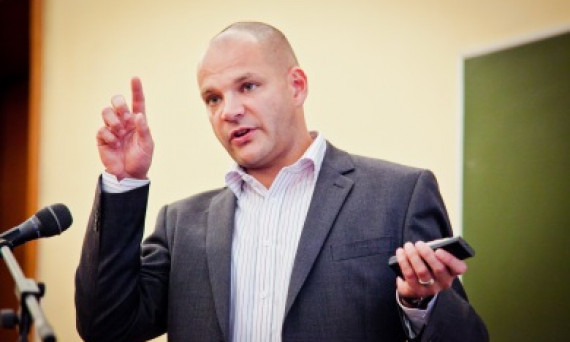Vladimir Piterbarg (Managing Director, Global Head of Quantitative Analytics, Barclays Bank, London), one of the best-known professionals of quantitative finance from the City of London consisted of two parts.
In the first part, Vladimir Piterbarg addressed issues that are now emerging in derivative asset pricing post-crisis, when collaterisation, funding and discounting effects are taken into account. He argue that the only truly credit-risk-free assets in modern economy are those that are fully collateralised on a continuous basis.
Piterbarg develops an asset pricing theory that uses such non-traditional “ingredients” as building blocks and, in particular, does not rely on the existence of a risk-free money market account. In particular, he develops a model of multi-currency collateral under the assumption that collateral can be instantaneously replaced, and looks at serious complications arising even for simplest derivatives when more realistic assumptions on collateral posting are considered. Piterbarg then looks broadly at how bank funding in general affects discounting, and extend his theory to uncollateralised and partially collateralised derivatives, linking it to previous work.
In the second part of the lecture, Piterbarg told the audience about a programme of graduate recruiting ran by the investment banking division of Barclays for quantitative analysts that is open to applicants from Russia.
About the lecturer: Vladimir V. Piterbarg, Managing Director, Global Head of Quantitative Analytics, Barclays Bank (London) – one of the leading theoreticians and practitioners of modern asset-pricing, a co-author of best-selling book in three-volumes entitled “Interest Rate Modelling” (Atlantic Financial Press, 2010), the holder of the Quant of the Year 2006 and 2011 awards according to the Risk Magazine and portal Risk.net.
















